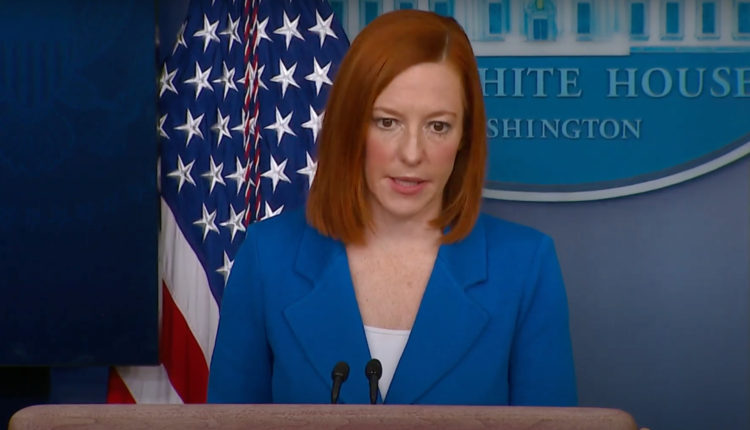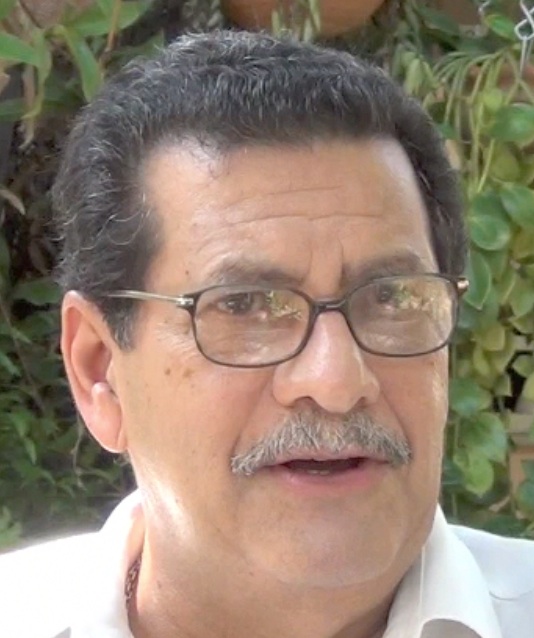 White House Press Secretary Jen Psaki
White House Press Secretary Jen Psaki
A review of Cuba policy: Two opinions
Last week White House Press Secretary Jen Psaki told the gathered press that the Biden administration will review U.S. policy on Cuba.
“Our Cuba policy is governed by two principles,” she said. “First, support for democracy and human rights – that will be at the core of our efforts. Second is Americans, especially Cuban Americans, are the best ambassadors for freedom in Cuba. So we’ll review the Trump administration policies,” Psaki said at a White House news briefing.
Two Progreso Weekly / Semanal collaborators, both who live in Havana, Jesús Arboleya Cervera and Rafael González Morales, and who specialize in the relations between the United States and Cuba, provide a first reaction to the aforementioned statement. We insist: it is a first approach to an important issue.

Jesús Arboleya Cervera:
Although this is an issue that will surely require more in-depth analysis in the future. We can begin by saying that the statement by White House spokeswoman Jen Psaki that the Joe Biden administration is planning a review of the Trump administration policy towards Cuba did not surprise many. Something similar was raised by President Biden during his campaign and everything seems to indicate that there is consensus within his administration.
The objective of this reform has not been discussed. Just as the manifest purpose the Trump policy was to overturn the Obama policy, that of the Democrats consists of reestablishing Obama’s, with the aim of increasing their influence in Cuba. Discussed is the priority that the Cuba issue has within the complex agenda facing the administration, as well as the scope and speed of the reforms being implemented.
The question is that it will not be easy to review the more than 200 sanctions imposed by the Trump administration, but it may not be necessary to do so on a case-by-case basis if the decision is made to establish a general framework that de facto eliminates them. Retaking the principles established by Obama’s presidential directive on Cuba, issued in October 2016, could serve as the basis for this.
The reality is that the basis of Obama’s policy towards Cuba has remained almost unchanged. The aim then is to revitalize the dynamics of diplomatic relations, which were not suspended; resume negotiations on the basis of the 22 mutual interest agreements still in force; fulfill the migratory agreements; and reestablish the progress made in relation to the people-to-people contacts, by reestablishing the twelve general categories authorizing trips from the U.S. to Cuba.
It is true that solving the problem of the so-called “sonic attacks,” clearly invented to justify the closure of the consulates, as well as removing Cuba from the list of countries that promote terrorism, can complicate the process, but diplomats from both countries already have the experience necessary to deal with these problems and that favors a solution.
The other variable is how both governments interpret the situation in which this policy must be adjusted, very different from the one that prevailed in 2014, when the agreements that led to the improvement of relations between the two countries were announced.
First, there is the pandemic, which has disrupted the priorities and governance of the entire world. To the extent that both countries advance in solving this problem, it will be easier to advance in increasing contacts and strengthening other interests. For Cuba, it is essential to overcome the crisis and neutralize the advances of the most aggressive forces during the Trump administration.
Second, there is the problem of the credibility of American policy. Both Cuba and other actors, including economic sectors from the United States and from other countries interested in the Cuban market, face a policy that has already demonstrated its fragility in the face of the political conjunctures of the United States. This experience poses a different scenario for the negotiations.
Finally, there is the Latin American and Caribbean environment, which was a very important factor in the U.S. decision to modify its policy towards Cuba. Although the area has seen a retreat of the right, the advance of progressive governments appears to be conditioned by such a level of economic deterioration, which limits the weight of their political initiatives.
In any case, the United States also needs to rebuild its relations with the region and it is possible that the next Summit of the Americas will take place this year there, which could accelerate interest in advancing relations with Cuba.

Rafael González Morales:
Pronouncements made by the White House spokeswoman focused on two fundamental aspects: stating the principles that will guide policy towards Cuba and announcing that they will undertake a review process of that policy.
Actually, these elements are not novel because the principles mentioned in general terms correspond to those declared during the Democratic presidential campaign and it had also been anticipated from that moment that Trump’s “failed policies” against Cuba would be eliminated, which should be the result of the review process.
So far, the only news is the official confirmation that the Biden administration will review the policy it inherited from Trump and it would appear that it will be in the short term.
However, there is nuance in the statement that I believe constitutes a particularly interesting and relevant element when the spokesperson affirms that they will review the policy “as we are doing in other areas of national security, with a view to ensuring that our approach is aligned with that.”
In my opinion, these pronouncements could indicate the following:
- There is a clear intention to highlight that the policy towards Cuba falls within the areas of national security for this government, which indicates that it is an issue of interest that goes beyond the narrow and politicized view that Cuba is a matter of internal politics anchored in South Florida.
- In the policy approach towards Cuba, interpretations and considerations that the Biden administration makes regarding the best way to satisfy U.S. national security interests will weigh heavily.
In practice, cooperation between both countries to prevent and face common threats and challenges such as pandemics, the causes and consequences of climate change, drug trafficking, terrorism, migration issues and transnational crimes is the most immediate, effective, and genuine way to serve those national interests. Both nations, for reasons of geographic proximity, share a range of dangers to their national security that can only be avoided and managed through mutual cooperation.
Several of the 22 bilateral instruments, signed and in practice, define the objectives, scope, modalities and mechanisms that both parties agreed to in combating all these threats. It is only necessary to put them into practice and resume the productive and professional exchange between the different counterparts. Taking this step will contribute in forging an environment of mutual security between the U.S. and Cuba.
3. Cuba will be part of the national security agenda of this new administration, which is not per se a negative thing because such insertion could be defined in the perspective of everything that Cuba can contribute in the fight against present and complex regional challenges. The regional scenario indicates that U.S. priorities towards Latin America and the Caribbean are centered on security issues and in this effort the role of Cuba cannot be ignored and is functional to its foreign policy interests.
This approach transcends bilateral cooperation and considers the Island as a factor of hemispheric stability, which has a precedent in the Obama Directive towards Cuba when it was stated that one of the objectives of the new policy was precisely “to encourage the development of a partner in the region that is capable of working with the United States to confront regional challenges.”
Therefore, an in depth review of the policy towards Cuba, carried out objectively and without politicization, that adequately weighs the cost-benefit balance and adheres to a serious and responsible interpretation of the national interests of the United States, could only lead to one result: Recognizing the need to make dialogue and cooperation the cornerstone of this relationship without ignoring the asymmetries, our deep differences and the essence of the historical conflict.


